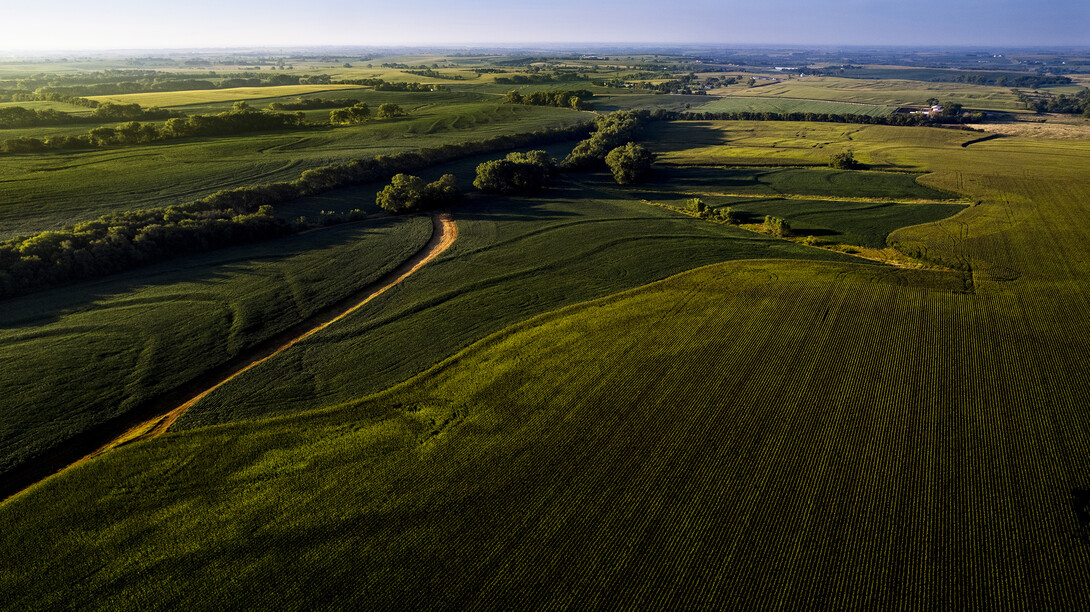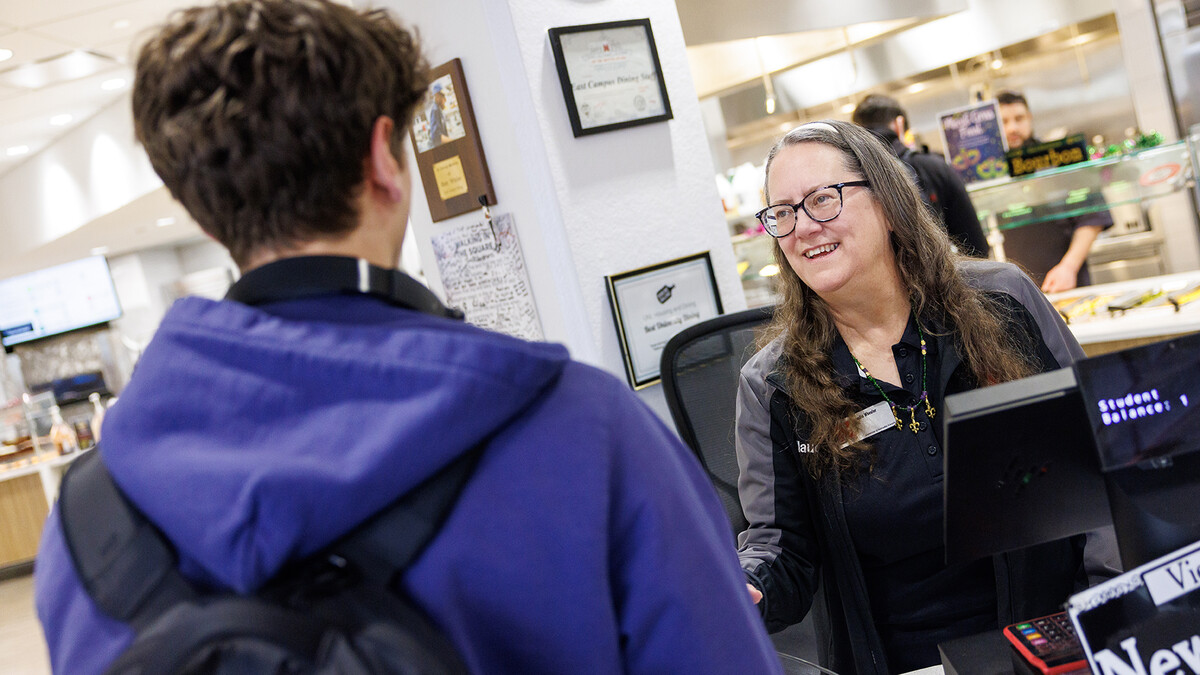
As the Internet of Things — the network of items embedded with sensors and software that record and share data — continues to expand, so do possibilities for implementing smart technologies across research fields and aspects of daily life.
The Agricultural Internet of Things, or Ag-IoT, has grown rapidly in recent years, offering new innovations and improvements to farmers in Nebraska and beyond. The rapid growth, however, of the Ag-IoT field and deployment of new devices have left security risks unaddressed and devices and data vulnerable. With a $582,987 grant from the National Science Foundation’s Secure and Trustworthy Cyberspace program and the Established Program to Stimulate Competitive Research, or EPSCoR, University of Nebraska–Lincoln computer scientist Nirnimesh Ghose aims to develop solutions to enable smart, scalable and secure wireless operations in a modern farm setting.

Ghose, assistant professor in the School of Computing, will collaborate with Mehmet Can Vuran, Dale M. Jensen Chair and Professor in the School of Computing, and Yufeng Ge, professor of biological systems engineering, on the project.
Ag-IoT offers many benefits to ranchers engaged in smart and precision farming practices, including efficiency, profitability, environmental sustainability and the ability to close the supply-demand gap by ensuring high yields. Unfortunately, most existing security options are unable to scale or operate at the necessary levels within these systems, and the lack of enabled privacy and security measures also poses many risks.
"The Ag-IoT field is interesting because it has not been explored much, and the security of it has not been explored,” Ghose said. “There are a lot of wireless devices that are deployed to collect data, but if the data is not secure, someone could inject malicious data into the network.”
Ghose explained that many farmers use smart technology to automate tasks or collect data to guide farming efforts. Many may deploy technology such as wireless sensors to measure moisture and nutrient levels in the soil, then adjust irrigation and fertilization operations accordingly. If an unsecured network and its data are compromised, it could yield potentially disastrous results such as flooding or damaged crops.
To combat this risk, Ghose and his team will develop a novel technique for identity authentication and message integrity verification called Soil-Assisted Things Trust Verification for Ag-IoT. The technique will solve interference issues between simultaneous transmissions by authenticating all devices present at a farm site with a location-based, zero-interaction protocol. The system will be able to quickly verify incoming messages, authenticate wireless nodes based on signals and determine authenticity based on unique signal profiles formed by soil patterns.
The state-of-the-art technique will also ensure that the network is secured automatically rather than manually, removing additional confirmation steps.
“If you think about the existing solution, you have to manually enter a password to connect the device,” Ghose said. “With this, we can swiftly connect all the devices present within the farm limits, but with the same level of security as what we achieve now through manual interaction.”
To test their proposed security measures, Ghose and his collaborators will use Vuran’s wireless testbed site at the Eastern Nebraska Research, Extension and Education Center near Mead. Vuran’s previous research has explored bringing wireless connectivity to rural areas to deploy new farming technology and tools. This project will focus on developing new secure technologies that are compatible with previous wireless innovations.
“The School of Computing has been strategically investing in Agricultural Internet of Things for the past several years,” Vuran said. “As a result, our school has a uniquely talented team of faculty and students in this area. I’m excited to join forces with one of our rising stars, Dr. Ghose, on this project to address the digital agriculture security challenges, which are of national importance.”
Ghose said he is also looking forward to exploring and making advancements in an uncharted but critical field of research.
“It is very important for our national economy that we maintain the security of agricultural farms, and no one is more interested in it than we are, being an agricultural community,” Ghose said. “We have access to resources that we can develop techniques for them, and we can verify it because we have access. It will be a very big interest to the community.”







